Английский язык для специальных и академических целей: Международные отношения и зарубежное регионоведение. Часть 1 - [85]
Switzerland has got into the occasional trade dispute with the EU, over Gruyere cheese for example. Still, for the most part it has secured good access to European markets so far. Its firms have subsidiaries in EU countries through which they can trade freely. And non-membership of the EEA means Switzerland has remained partly aloof from financial regulations emanating from Brussels. But the Swiss have come up with their own, often extremely stringent, financial regulations, partly in fear of losing access to EU customers.
And the country is not beyond the reach of Brussels. The Swiss are currently exercised over several European directives, including those covering finance, chemical factories and the movement of labour. Switzerland is hampered by the lack of an accord with the EU on financial services and by its lack of representation in Brussels. In the broader fight against protectionism and financial over-regulation in Europe, it relies on an informal alliance with another country that also has a big financial-services industry, as well as a valuable seat at the negotiating table: Britain.
In any case, it is unlikely that Britain could get similar treatment. The EU is already trying to muscle Switzerland out of its special niche and into an arrangement more like Norway's, where EU legislation would be speedily taken up by the country. Relations have become more fraught since the EU expanded eastward. The EU used to be a club of Western nations which share a broad culture with Switzerland (many share a border with it, too) and tolerated its peculiarities. The club is now bigger and more bureaucratic, and includes east European countries which were forced to swallow much unpalatable stuff as the price of entry to the club. There is little chance that Britain, a far bigger country with a history of being difficult, would be allowed to squeeze in alongside Switzerland.
The Reader
No country has ever left the European Union (though Greenland, an autonomous dependency of Denmark's, voted to leave in 1982). The halfway options of Norway and Switzerland were offered largely in hopes of tempting both to become full members one day. Britain would be travelling in the opposite direction, without a map. In this, as in so many other ways, leaving the EU would be a colossal gamble.
The British would doubtless try to negotiate a special deal with their former partners, using the argument that trade benefits both sides and that Britain is itself a large market for many. But the process could take many years (it took a decade for the much smaller Switzerland). Europe might well be more of a fortress with Britain outside. And even the country's closest friends, who would rather keep Britain in to bolster liberal voices inside the EU, would be unlikely to be generous to a country that had chosen to leave.
The most likely outcome would be that Britain would find itself as a scratchy outsider with somewhat limited access to the single market, almost no influence and few friends. And one certainty: that having once departed, it would be all but impossible to get back in again.
http://carnegieeurope.eu/2014/07/10/how-eu-sleepwalked-into-conflict-with-russia
By Ulrich Speck>65>July 10, 2014
The EU and Russia are fighting over their joint neighborhood, and the stakes are too high for either side to back down. Can they bridge their divides?
The EU and Russia are engaged in an open conflict over their joint neighborhood. Yet, curiously, the EU never intended to get into a geopolitical confrontation with Russia. Quite the opposite — it sleepwalked into it.
But now the stakes are too high for both sides to back down. Both sides see the conflict as vital, and it is shattering fragile relations between Russia and the West. How did they stumble into a confrontation that the EU, at least, wanted to avoid? Why is this conflict so intense? And what have both sides learned so far from the confrontation?
The EU has two vital interests at stake in the current conflict with Russia. First is a stable and prosperous neighborhood in the East. The second is Russia's respect for the ultimate taboo of Europe's peace order — the prohibition against changing borders by force. For a bloc that is founded on accords between states, upholding the rule of law in international agreements is vital. And to see a powerful country invading and annexing the territory of a weaker neighbor for Europeans brings back memories of a darker age of ruthless competition.
In addition, the longer the open confrontation lasts, the more not losing becomes an important goal in itself, as the EU's credibility as a united and powerful actor on the international scene is on the line.
The Reader
What is at stake for Russia is its position as a great power, which in the Russian view implies dominance over the post-Soviet space. A state that cannot even control smaller and weaker neighbors is, from the perspective of classical power politics, not even a regional power. Losing in Ukraine would be seen in Russia as a humiliation, especially after Kremlin-controlled Russian media have strongly beaten the drums of war. And without Ukraine, Moscow's Eurasian Union project is unlikely to gain traction.
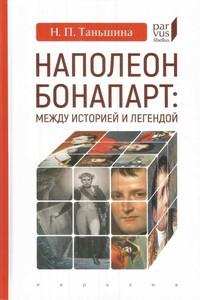
Наполеон притягивает и отталкивает, завораживает и вызывает неприятие, но никого не оставляет равнодушным. В 2019 году исполнилось 250 лет со дня рождения Наполеона Бонапарта, и его имя, уже при жизни превратившееся в легенду, стало не просто мифом, но национальным, точнее, интернациональным брендом, фирменным знаком. В свое время знаменитый писатель и поэт Виктор Гюго, отец которого был наполеоновским генералом, писал, что французы продолжают то показывать, то прятать Наполеона, не в силах прийти к окончательному мнению, и эти слова не потеряли своей актуальности и сегодня.
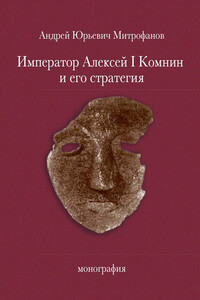
Монография доктора исторических наук Андрея Юрьевича Митрофанова рассматривает военно-политическую обстановку, сложившуюся вокруг византийской империи накануне захвата власти Алексеем Комнином в 1081 году, и исследует основные военные кампании этого императора, тактику и вооружение его армии. выводы относительно характера военно-политической стратегии Алексея Комнина автор делает, опираясь на известный памятник византийской исторической литературы – «Алексиаду» Анны Комниной, а также «Анналы» Иоанна Зонары, «Стратегикон» Катакалона Кекавмена, латинские и сельджукские исторические сочинения. В работе приводятся новые доказательства монгольского происхождения династии великих Сельджукидов и новые аргументы в пользу радикального изменения тактики варяжской гвардии в эпоху Алексея Комнина, рассматриваются процессы вестернизации византийской армии накануне Первого Крестового похода.
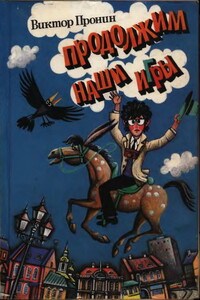
Виктор Пронин пишет о героях, которые решают острые нравственные проблемы. В конфликтных ситуациях им приходится делать выбор между добром и злом, отстаивать свои убеждения или изменять им — тогда человек неизбежно теряет многое.
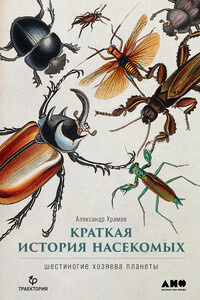
«Любая история, в том числе история развития жизни на Земле, – это замысловатое переплетение причин и следствий. Убери что-то одно, и все остальное изменится до неузнаваемости» – с этих слов и знаменитого примера с бабочкой из рассказа Рэя Брэдбери палеоэнтомолог Александр Храмов начинает свой удивительный рассказ о шестиногих хозяевах планеты. Мы отмахиваемся от мух и комаров, сражаемся с тараканами, обходим стороной муравейники, что уж говорить о вшах! Только не будь вшей, человек остался бы волосатым, как шимпанзе.

Настоящая монография посвящена изучению системы исторического образования и исторической науки в рамках сибирского научно-образовательного комплекса второй половины 1920-х – первой половины 1950-х гг. Период сталинизма в истории нашей страны характеризуется определенной дихотомией. С одной стороны, это время диктатуры коммунистической партии во всех сферах жизни советского общества, политических репрессий и идеологических кампаний. С другой стороны, именно в эти годы были заложены базовые институциональные основы развития исторического образования, исторической науки, принципов взаимоотношения исторического сообщества с государством, которые определили это развитие на десятилетия вперед, в том числе сохранившись во многих чертах и до сегодняшнего времени.
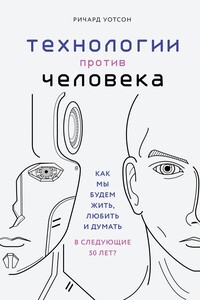
Эксперты пророчат, что следующие 50 лет будут определяться взаимоотношениями людей и технологий. Грядущие изобретения, несомненно, изменят нашу жизнь, вопрос состоит в том, до какой степени? Чего мы ждем от новых технологий и что хотим получить с их помощью? Как они изменят сферу медиа, экономику, здравоохранение, образование и нашу повседневную жизнь в целом? Ричард Уотсон призывает задуматься о современном обществе и представить, какой мир мы хотим создать в будущем. Он доступно и интересно исследует возможное влияние технологий на все сферы нашей жизни.